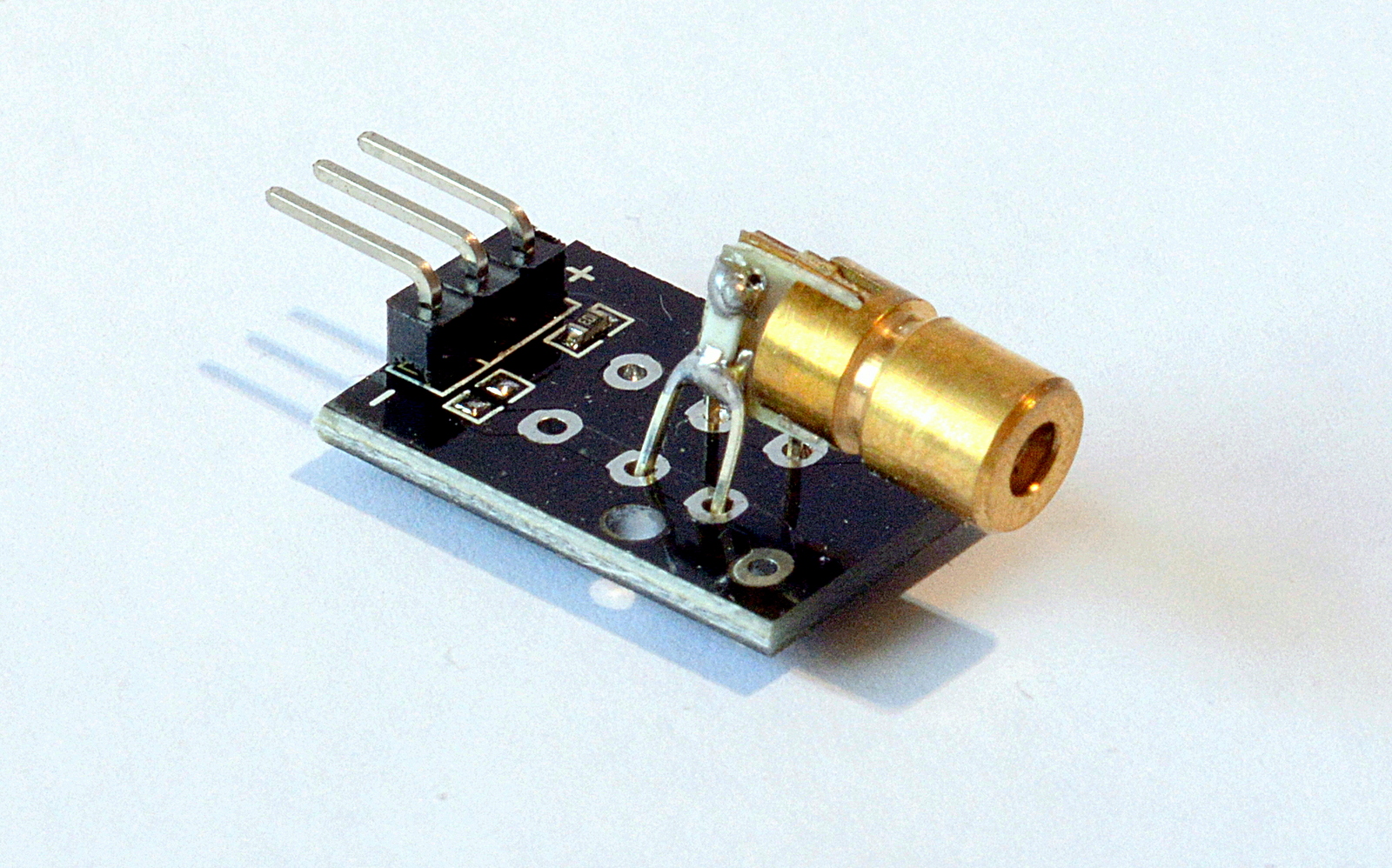Tech details:
- Wavelength: 650nm (red)
- Operating voltage: 5V
- Range: Unlimited* (in vacuum)
- Current draw: 30mA
Connectivity:
3 pin connector, pins as follows:
- VCC(+): 5V Supply
- N/A
- GND (-): Ground
You can connect this directly without risking any damage to your microcomputer.
What does it do?
Apart from destroying the space ships in numerous movies, laser module can be used in a much safer manner. Two main uses for KY-008 laser module involve ‘tripwire’ detecting and using it as a pointer. Lasers are a great way to draw distances and limits as they shoot straight often at very long distances. Coupled with a photoresistor or specialised laser detecting module can be used to detect a breach in the path of the laser. In theory lasers (as light do) can travel until they hit something, in practice laser light will scatter in the atmosphere, and while going through the (imperfect) lens which causes the scatter and increased dot size.
Last but not least, don’t look at the beam, this thing can obliterate space ships, imagine what it can do to your retina!
How to use it?
This is one of the simpler modules, that requires very minimal interaction. Unless you need to have an access to the power state of the laser, you could put the sensor in the separate circuit. To create the ‘tripwire’ behaviour only photo sensing module needs to be connected to your device.
The KY-008 laser module is connected only to the power pins unless you need to enable and disable the laser whenever not in use. The VCC (+) pin goes to the 5V pin on the Raspberry Pi (red) and (-)GND is connected to the ground pin (black). Alternatively, you can connect the laser module to any 5V power source and use the photosensor module to enable and disable sensing.
Sample code:
This module does not require code to operate.





















